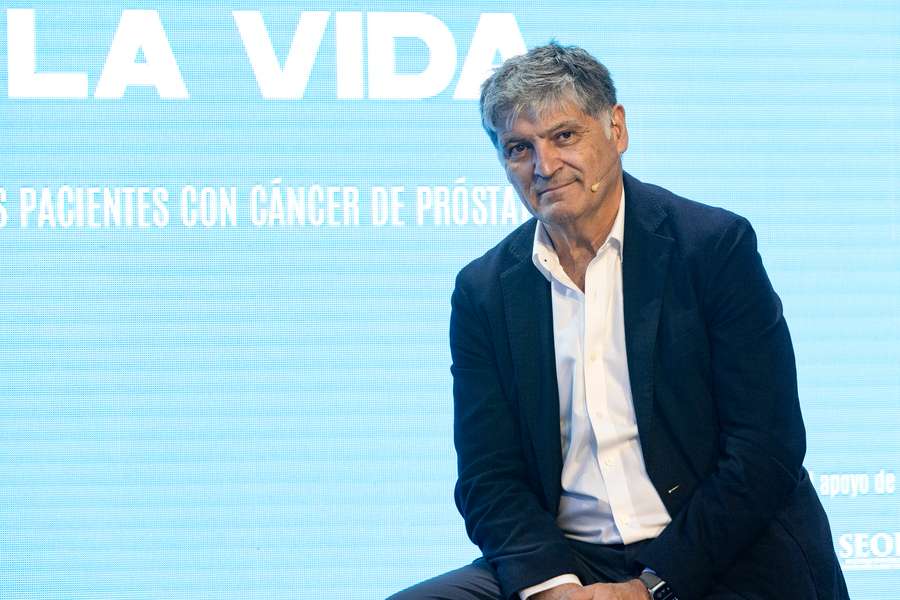EXCLUSIVE: Nadal's uncle and former coach on triumphs, retirement and Alcaraz

Prostate cancer affects many men, and the different organisations present at the event held at the WiZink Center in Madrid spoke about the positive effects of sport on the health of those who suffer from it and in the field of prevention.
Toni Nadal intervened in his capacity as patron of honour, and after the purely scientific part, he kindly answered questions from Flashscore.
With his nephew Rafa's retirement just around the corner - it will be at the Davis Cup Final 8 in Malaga from 19th to 24th November - it was inevitable that he would be asked about his experiences with the winner of 22 Grand Slam tournaments.
Still, there was also time to talk about the management of elite athletes, Carlos Alcaraz, the hurricane that devastated Valencia, and a few other topics.
Inevitably, I have to ask you to send a message to the people affected by the WLD and to tell us a little about whether it has affected Mallorca and how it has affected Rafa's academy.
"The DANA affected the academy. It did a lot of damage there, but I think it is insignificant compared to the tragedy we have lived through in Valencia, not only the Valencians, but all Spaniards.
"Obviously, this is not the time to discuss what happened in Mallorca. I, in particular, have experienced it with great sadness because losing so many lives all at once is hard, very hard. And then to see the images on TV is disheartening."
On a more sporting level, Rafa will retire in a few weeks. How do you feel about his retirement?
"It will also be an emotional moment. To close a stage of more than 20 years, yours, in professional tennis, to close it all at once, it's hard.
"But, on the other hand, we knew that this moment had to come and that it was very close. So, we took it as normal."
The best time to retire
Rafa has been accused of not knowing how to retire. They say that the way Toni Kroos did it - at the top - is ideal. Do you think there is a good time to do it?
"People always tend to blame others for things they don't do themselves. Rafael found it hard to retire because, for anyone, to stop doing an activity you like and have been doing for many years is hard.
"Afterwards, my nephew has lived another reality: for years, he has lived with problems, with injuries that he has been able to overcome. This time, it wasn't like that. It didn't happen, and when he realised it was impossible, he retired. But before that, he would have wanted to continue, of course."
You have been Rafa's coach for many years. He plays an individual sport, but how do you manage these elite athletes? We see Carlo Ancelotti being criticised as a 'manager' - do you manage these sportsmen more psychologically, or do you have to be tough with them?
"Well... I think you go through stages. When you're young, you're in a training process and then when you reach the elite... I was a very demanding coach, but I always tried to turn this demand into self-demanding.
"In the end, it's the player who says where he wants to go. The coach accompanies and tries to motivate when necessary, but it's a personal matter for each individual. Competitive sport is demanding above all else, and you have to be aware of that."
Handing over the baton to Alcaraz
In Malaga, will the baton's passing to Alcaraz be staged during the Davis Cup?
"I think it is already well staged. Alcaraz has been among the best in the world for a few years.
"He is a great player, and I think that fortunately for the Spanish, we have a young man who is going to give us great satisfaction and who is going to give us a lot of fun on many Sundays in important finals."
Rafa is a legend and surely the best Spanish sportsman in history. He shone the most at Roland Garros; how was the process of going from being hated to revered by the French public?
"The first year, I had no animosity. I think later when he started winning so much, people didn't want to see him win so much.
"In the end, the French public surrendered to Rafael's behaviour because, in life, it's not just about winning; it's about how you win.
"I think Rafael did that very well, and that's why there was a change in France, to the point of seeing the recognition they gave him at the Olympics."


